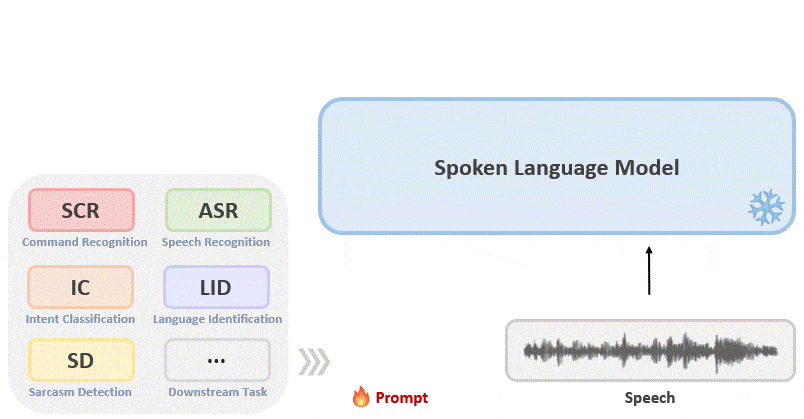NEWS
- [April 2025] The SpeechPrompt journal paper will be presented at ICASSP 2025 in Hyderabad.
- [Aug. 2024] SpeechPrompt is published as a Journal paper on IEEE/ACM TASLP [link]
- [June 2023] SpeechGen paper is available [link]
- [May. 2023] SpeechPrompt v2 code released [link]
- [March 2023] SpeechPrompt v2 paper is available. [link]
- [Oct. 2022] Website of SeechPrompt project is borned
- [Oct. 2022] "SpeechPrompt" is an research topic in the JSALT workshop [website]
- [June 2022] SpeechPrompt v1 is accepted at INTERSPEECH 2022 [paper] [code]
- [March 2022] SpeechPrompt v1 is available on arXiv [link]
